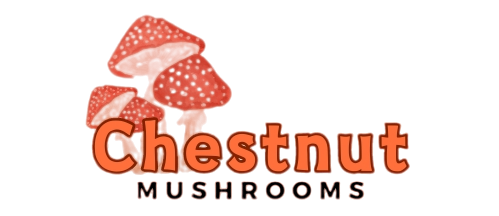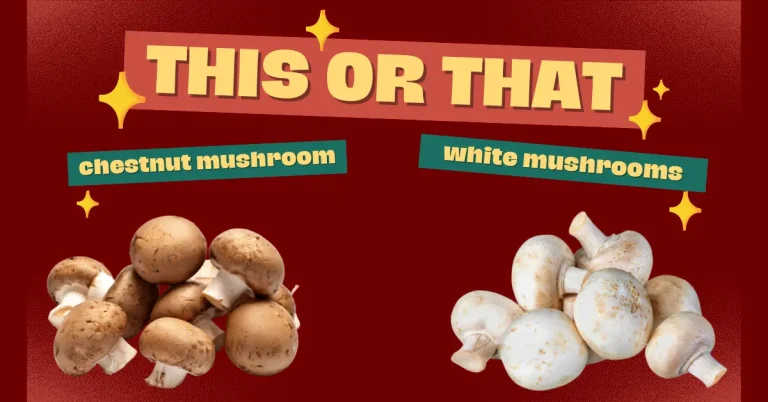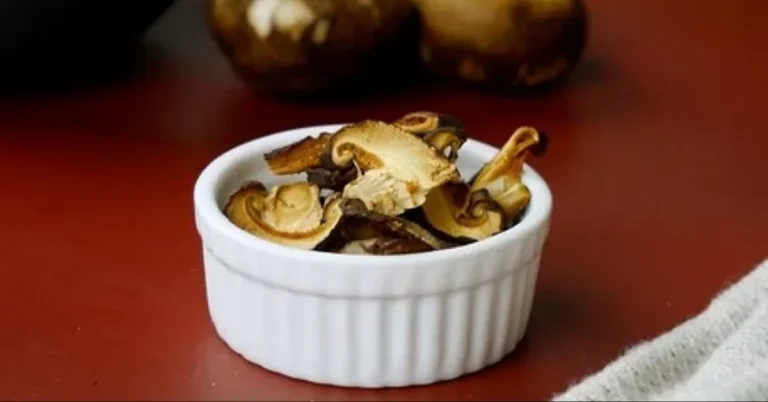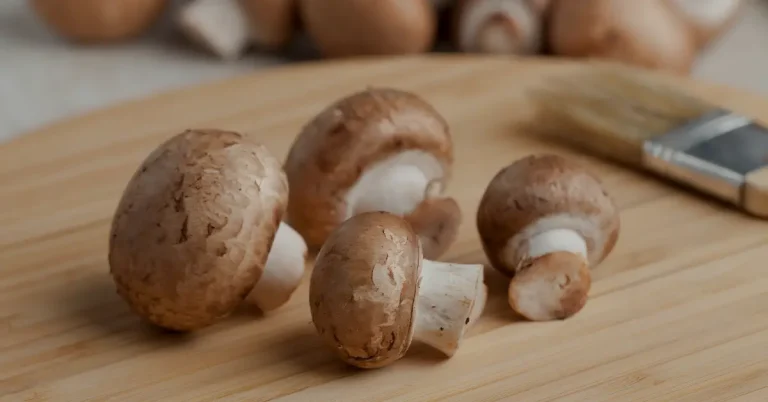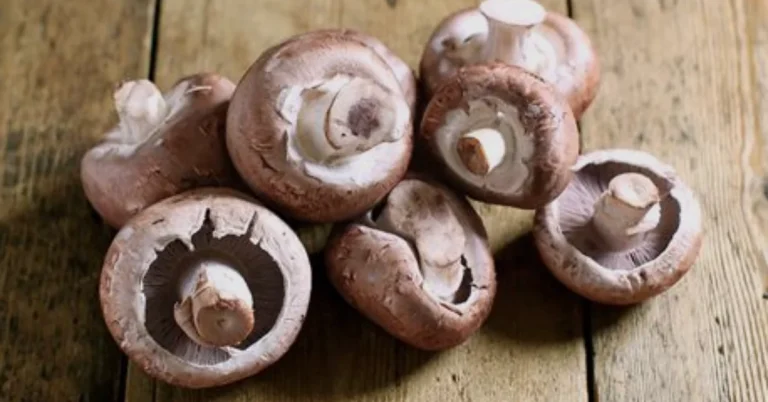Chestnut Mushrooms For Babies: A Guide For Little Foodies
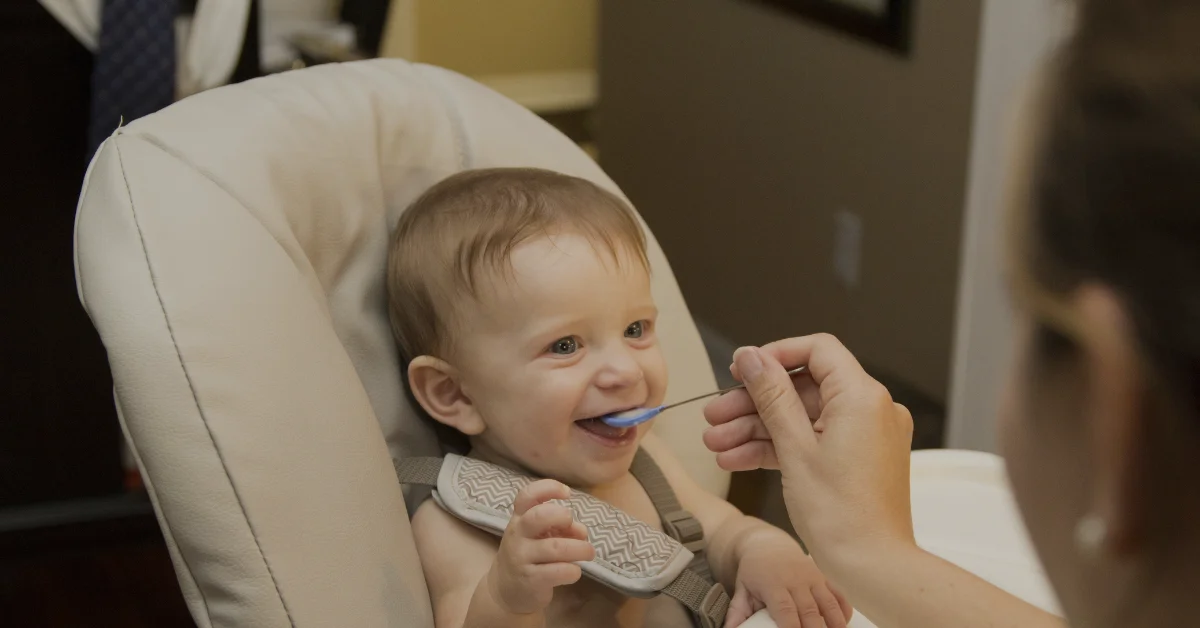
Can babies eat mushrooms?
Introducing new foods to your baby’s diet can be exciting and challenging, especially when considering unique ingredients like chestnut mushrooms. As a parent, you must ensure that every meal is nutritious, safe, and suitable for your little ones.
Chestnut mushrooms offer a distinct flavor and nutritional profile, but it’s essential to understand whether they are appropriate for your baby’s age and developmental stage.
The good news is, Yes! Chestnut mushrooms and other cultivated varieties at the grocery store are a fantastic addition to your baby’s diet.
Let’s dive deeper and explore chestnut mushrooms for babies and why these little fungi are superstars for tiny taste buds.
Can My Baby Eat Chestnut Mushrooms?
Yes, around 6 months old, chestnut mushrooms can be a great addition to your baby’s diet. Packed with vitamins, minerals, and fiber, they’re nutritious and delicious. Remember to:
- Choose fresh, firm mushrooms
- Cut them into tiny pieces or puree them for younger babies
- Cook them thoroughly before serving
Why are Chestnut Mushrooms Awesome for Babies?
Chestnut mushrooms aren’t just tasty; they’re packed with essential nutrients that support your baby’s healthy development. Here’s a breakdown of some key benefits:
- Vitamin D: Unlike most vegetables, chestnut mushrooms are a natural source of vitamin D, which is crucial for strong bones and teeth. Vitamin D also helps your baby’s body to absorb calcium, another important building block for healthy bones.
- B Vitamin: These little mushrooms are packed with B vitamins, including B1 (thiamine), B2 (riboflavin), and B3 (niacin). B vitamins help in energy production, brain function, and cell growth.
- Minerals: Chestnut mushrooms are like tiny treasures filled with minerals! Potassium, a key mineral in these mushrooms, helps muscles function properly. Copper, another important mineral, contributes to healthy brain development and nerve function.
- Fiber: Fiber is a crucial part of a healthy diet, and chestnut mushrooms are a good source of it. Fiber helps keep your baby’s digestive system moving smoothly, preventing constipation and promoting overall gut health.
Umami Taste: Introducing a New Taste Sensation!
We all know the basic tastes of sweet, sour, salty, and bitter. But did you know there’s a fifth taste called umami? Umami translates to “savory” in Japanese, and it’s often described as a brothy or meaty flavor.
Chestnut mushroom’s umami taste adds delicious flavor to your baby’s food.
When Can My Baby Start Enjoying Chestnut Mushrooms?
Around 6 months old is typically when babies are developmentally ready to start exploring solid foods. This is a crucial time to introduce a variety of nutritious options to ensure they get all the nutrients they need for healthy growth.
While every baby develops at their own pace, chestnut mushrooms can be a great addition to your baby’s first food adventures.
Remember, it’s always best to consult with your pediatrician before introducing any new foods to your baby, especially if they have any allergies or sensitivities.
How to Prepare Chestnut Mushrooms for Your Baby
Let’s explore how to prepare them safely and deliciously.
- Picking the Perfect Batch: Freshness is key! At the grocery store, look for firm chestnut mushrooms with a smooth, unblemished cap. Avoid any mushrooms that are slimy, bruised, or discolored.
- A Quick Bath: Cleaning is a must. Like any other produce, you should give your chestnut mushrooms a quick rinse under clean running water to remove dirt or debris.
- Size Matters A Lot! Remember, choking is a major concern when introducing solid foods to babies. Cut the chestnut mushrooms into very small pieces to minimize the risk. For younger babies, consider making a smooth puree using a food processor or blender.
- Cooking Time: Always cook chestnut mushrooms thoroughly before serving them to your baby. This helps break down the cell walls of the mushrooms, making them easier for your little one to digest. You can steam, roast, or saute the mushrooms until they are nice and soft.
Chestnut Mushroom Recipes for Babies
Let’s get creative in the kitchen! Here are a couple of easy and flavorful recipes to entice your baby’s taste buds:
- Super-Smoothie: This creamy and nutritious treat is perfect for younger babies. Simply steam or roast a few chestnut mushrooms and blend them with mashed banana, avocado, and a splash of breastmilk or formula. The sweetness of the banana and avocado complements the savory notes of the mushrooms, creating a delightful flavor combination.
- Mushroom Medley Mash: Steam or roast chopped chestnut mushrooms with some sweet potato or butternut squash. Once everything is soft, mash it with a fork or potato masher. For a smoother texture, add a little breastmilk or formula. This dish is packed with vitamins, minerals, and fiber, making it a nutritious and satisfying addition to your baby’s meal.
Exploring More Mushroom Magic!
As your baby gets older and their palate develops, you can explore a wider variety of mushroom recipes. Here are some ideas to get you started:
- Tiny Timbales
Saute chopped mushrooms with spinach and grated cheese. Spoon the mixture into small muffin tins lined with parchment paper and bake until set. These bite-sized treats are perfect for finger foods and can be easily customized with different herbs and spices.
- Creamy Mushroom Risotto
Saute chopped mushrooms with onions and garlic, then add cooked arborio rice and gradually incorporate vegetable broth. Once the rice is cooked through, stir in some grated parmesan cheese and a splash of cream for a creamy and flavorful finish. Puree the mixture to a smooth consistency for younger babies, or offer chopped pieces for older babies who are comfortable with more texture.
- Frittata Fun
Saute chopped mushrooms with some chopped vegetables like bell peppers or zucchini. Pour a mixture of beaten eggs with grated cheese over the vegetables in a skillet and cook until set. Cut the frittata into small pieces for your baby to enjoy.
Allergies and Choking Hazards
While uncommon, some babies might be allergic to mushrooms. When introducing any new food, including chestnut mushrooms, it’s crucial to follow the single-ingredient rule.
Start by offering a small amount of cooked and pureed mushrooms on their own. Wait for for allergic reactions, such as, vomiting, or diarrhea. If there are no issues, you can gradually incorporate mushrooms into other recipes.
Remember, choking is a major concern when introducing solid foods to babies.
Always supervise your baby closely during mealtimes and make sure the mushroom pieces are small enough to prevent choking.
The Joy of Food Exploration
Introducing your baby to new foods is an exciting adventure. By incorporating safe and nutritious options like chestnut mushrooms, you’re not only nourishing their little bodies but also helping them develop a healthy relationship with food.
Remember, mealtimes should be a positive and enjoyable experience for both you and your baby.
Don’t get discouraged if your baby isn’t a fan of mushrooms right away. Keep offering them in different ways and textures, and eventually, they might discover a love for these little nutritional powerhouses.

